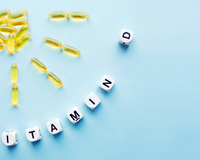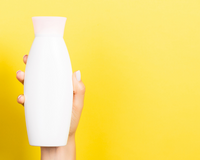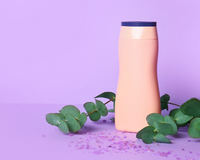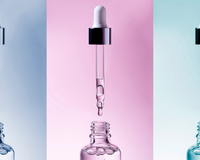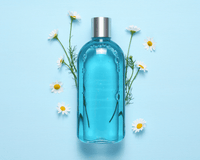Anti Age Product Hydration For 40s
As we age, our skin loses its glow, elasticity, and brightness. In your 40s and 50s, for example, you might notice wrinkles, black spots, or skin that hangs down. But anti age product hydration for 40s might help bring back your youthful glow by locking in moisture and making your skin look and feel smoother and more bouncy. It's never too late to start moisturizing. Moisturizers keep the skin from drying out and also give it vitamins and antioxidants.
A moisturizer's main job is to keep the skin moist. The main types of chemicals in moisturizers are humectants, which draw in water, emollients, which soften the skin, and occlusives, which keep the water in. Each of these chemicals pulls moisture out of or keeps it in your skin in a different way, and most moisturizers have a mix of all three. The best moisturizers are made up of emollients and fatty acids that act like the skin's natural lipids, stop water loss, and promote the formation of ceramides.
What Does Anti Age Product Hydration For 40s Do To Your Skin?
As we get older, our bodies make less collagen, a type of protein that keeps skin strong and smooth. As a result, our skin ages. Collagen is an important part of the deeper structure of our skin. It gives our skin strength, moisture, elasticity, brightness, and bounce, all of which make us look younger. Unfortunately, after age 30, we lose about 1% of our ability to make new collagen every year for the rest of our adult lives. Also, some lifestyle choices, like spending too much time in the sun, smoking, or eating too much sugar, can hurt the skin.
The American Academy of Dermatology Association says that no one product can treat all signs of aging skin. Because of this, it's important to choose solutions that deal with your specific skin problems.
Is 40s Late For Using Anti Age Product Hydration For 40s?
Everyone can benefit from a good moisturizer, but this important skin care step is especially important for seniors because moisturizers can help with a number of skin problems that come with getting older.
Biological factors like your age, gender, and genes, lifestyle factors like how much you exercise, sleep, eat, and take care of your skin, and environmental factors like pollution, climate, and sun exposure all affect your skin's health. In your 50s and 60s, you may start to see signs of aging on your skin. Moisturizing creams have different ingredients that treat different skin problems that come with getting older. For example, hyaluronic acid can be used to treat dry skin.
Thin, crepey skin can be fixed with retinoids. Vitamin C can be used to fix skin that is getting loose. Wrinkles and fine lines can be fixed with retinoids and bakuchiol. Niacinamides can help with discoloration and hyperpigmentation of the skin. Acne-prone mature skin can be treated with retinoids. Ceramides can help treat skin that is sensitive. It's important to choose a moisturizer with chemicals that hydrate, renew, and repair the skin.
How To Use Anti-Aging Moisturizer To Your Face?
Doctors say that if you have mature skin, you should add the following to your morning skin care routine:
- Cleanser
- Serum
- Moisturizer
- Sunscreen
You can do the same thing in the evening, except you won't need sunscreen. Your beauty routine may change with the seasons, but you should always use moisturizer. In the summer, people often skip moisturizer, but keeping our skin hydrated is one of the most important ways to control oil. Gel moisturizers with hyaluronic acid, glycerin, or other humectants are best because they can draw water to the skin without making it feel heavy.
Why Do We Need To Moisturize Our Skin?
As people get older, they need more care that helps them stay young. There are many things that affect how well anti-aging treatments work. When skin care is a top priority, for example, early signs of aging are less likely to show up. As an important part of anti-aging, moisturizing care is also becoming more popular. When people don't drink enough water, it makes them sick in many ways, but thirst is the most common. The skin is the same way. Dry skin can lead to a lot of different problems. Paying attention to how well your skin stays moist will pay off right away and over time.
In the short term, using a lotion to keep your skin moist will make it look healthy. Moisturizing creams help keep water from leaving the skin and protect it from damage caused by wind and heat. This makes it look like your hair is softer, smoother, and better cared for. There are several long-term benefits to using a humidifier correctly. The skin can be fixed more easily, which is good for treating aging. People with less wrinkles and sagging skin are more likely to use moisturizers every day.
Moisturizing Anti Aging Routine
In addition to moisturizing care, anti-aging care depends on a number of factors. You can avoid the signs of aging if you use anti-aging products that are right for your age, skin type, and goals. Even if you already have sagging skin and wrinkles, anti-aging lotions can still help, but you shouldn't wait too long to see results. This way, it will be possible to get a lot better results.
If you want to get the most out of anti-aging products, it's important that the cream gets into the skin. To do this, the skin needs to be clean. Use the product after you've cleaned your skin of dirt, sweat, oil, and make-up. This is also true of other skin care items.
You can no longer use the soaps you used in high school to clean your face. Instead, you have to use cream-based cleansers. Face cleaning milks are made of a creamy substance that soothes and hydrates your skin while removing make-up without irritating it. Remember that there is a moisturizer for every type of skin. Even if you have combination or oily skin, your face can still get dry. Use a moisturizer that is right for your skin type to avoid getting wrinkles early.


